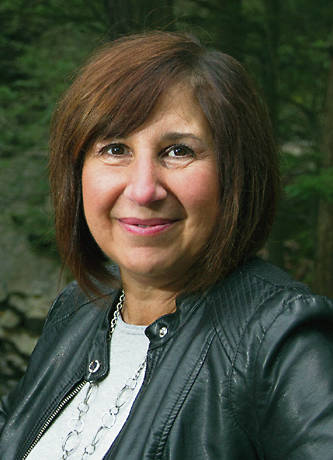The recent headlines about Robinhood, Reddit, and the younger investors in the market, got me thinking about how all of my kids have developed an interest in the stock market.
It’s never too early to start saving for the future. It’s probably the most important lesson we can teach our kids.
A quick note at the outset: I’m not an investment professional and am not recommending any of the stocks mentioned in this column, just discussing the investing trend and letting you know how our family invests.
My husband was so focused on saving, that I used to call him the cheapest person I ever met because he never wanted to spend any money. Saving still comes first for us, and it’s one of the better habits that rubbed off on our kids. Our son, Greg, is the most enthusiastic about investing. He’s so interested that he contemplated starting his own hedge fund. I was glad that ambition passed quickly. While some of our kids are more conservative than others, and they’ve all been contributing to their retirement accounts since they began working, they have also developed a DIY approach to investing.
Why have younger investors like them gotten more heavily into the stock market as of late? I think apps like Robinhood made stocks that may have been too expensive more attainable by enabling investors to purchase a fraction of a share. That, as well as the ease of buying and selling for tech-savvy youth and some extra savings from staying home. As the headlines have shown, Robinhood may not have been the best choice for many.
I asked my good friend and go-to investment authority, Liz Graham of Riggs Asset Management, what she thought about the trend. She agreed the combination of more savings and more time led to an increased interest among younger generations. She also said that more millennials are focused on saving because they have lived through different financial crises and have seen the stock market move higher after each crisis. During their lifetime, millennials have endured the economic effects of stock market corrections, the impacts of 9/11, and now the pandemic.
She said most of them believe they won’t see social security by the time they retire, and feel it’s up to them to build their own wealth. “They aspire to affluence” is how she put it. She agreed; the advent of Robinhood and other apps made engaging in the stock market more accessible.
Liz was quick to mention that what happed with Robinhood, Reddit, GameStop, and a few other stocks was not investing and can be dangerous to trade into. The goal of investing is to identify a company that has great growth potential that you want to be a part of. You want to be an owner of that energy, to invest in it, and watch it grow along with your investment. Greg, like our other kids, learned a lot about the stock market and investing from my husband, Bill. He said he remembers his interest started back in 2009 when Bill showed him a book written by Jim Cramer on the topic of recovery stocks after the housing crash. Greg said he got even more into investing after reading an article about a guy who made $2 million in six years investing in stocks. He said he made it his personal goal to have $2.5 million by the age of 40. That’s a pretty lofty goal, but one I admire. Maybe he can attain it and take care of his mother! He’s also big on saving for retirement, which is so important, and he maxes out his Roth IRA for the tax benefits. This all goes hand in hand with Liz saying that the younger generation “aspires to affluence.” Greg’s still single, so he hasn’t yet experienced how kids can put a dent in your savings and derail your goals of getting rich.
Our daughter Kristin dipped her toes into the market more recently after getting some tips from Bill and realizing you could invest smaller amounts. She said she had been afraid to invest in individual stocks in the past, feeling like she would be risking the savings she worked so hard to build. Investing in smaller amounts made her feel more comfortable. She said she made some financial mistakes in her 20s, racking up some hefty credit card debt, which she is still working to pay off. She doesn’t invest now for quick earnings like Greg, she invests for the long term and to have a sound financial future and not worry about building debt again. She believes investing in the stock market is the path to financial freedom. Her goal is to have $500,000 invested, in addition to her 410k, by age 40. That’s also a high goal, but possibly more realistic than Greg’s.
My husband and I have been talking stocks for as long as I’ve known him. Right before we got married, through Bill’s encouragement, we started a stock club with a few friends and family members. We did some research on how to start, selected a name, filed the necessary paperwork, opened an E-Trade account, and created a partnership agreement. The club, called StockUp, is still active today. Even in the club, we see a lot of interest from younger individuals, including our son Bill Jr., niece Emily and others. They are all eager to learn about investing and grow their savings. In fact, our mission from day one has been to make money, but equally important, to learn how to invest.
Bill has done a great job in teaching younger members about the intricacies of investing and how to do adequate research. Once a month, we meet to discuss and buy stocks to add to our portfolio. Everyone is assigned research on our existing holdings, as well as new stocks they can bring to the table for consideration. It’s been a great learning opportunity for everyone involved, and best of all, we’ve watched our money grow.
While our kids picked up their interest in investing by watching my husband, like other millennials, they got more into it when they found themselves with extra savings from less spending last year. We all found ourselves with more at-home time. To pass the time, my husband and I decided to have an investing competition last spring. It was so much fun, we kept it going. We pulled a little of our money out of the market when the pandemic began, and then slowly got back in. We each took a portion and were able to invest in anything we wanted. Whoever made the most money at the end of two months was the winner. Bill is a bit more conservative, so he picked a few stocks that paid dividends because they counted towards the profit. I on the other hand am a risk-taker. I filled my portfolio with Tesla, Amazon, NVIDIA, Apple, Zoom, Square, and some other tech stocks that paid off and won me the contest.
Investing in stocks means ongoing research. Greg spends probably 3 to 4 hours a week doing homework on the companies he’s invested in, while Bill probably spends an hour or two each night. In my family, we all have different ways of selecting stocks. Bill does a lot of financial reading, watches financial news, and then does a ton of research. He’s more methodical about his research and slower to pull the trigger on a stock. He believes Yahoo Finance is one of the most useful tools for him.
I look more for stocks that have a tie to AI and are tech-focused, or companies with products or services I use, such as ZOOM, Facebook, Amazon, and Chewy. Kristen does the same, investing in stocks like Chewy, Apple, and Disney. We are a family of dog lovers as you can see. Greg likes to invest in stocks that are either part of a larger trend or a theme, such as the rollout of 5G or electric vehicle companies that are disruptive in their industry. He said if he doesn’t think a stock can realistically appreciate at least 4-5 times its current level, he won’t invest in it. He invests in stocks like Lemonade, an insurance industry disrupter, Penn National Gaming, and Fastly, which is an edge cloud computing and content delivery network play. He makes the riskiest moves of any of us and some have paid off, such as his investment in Bitcoin. Again, this might not be the smartest move, but it seems to be paying off for him.
My daughter Katie’s fiancé Rob is a big saver and has been investing since he was old enough to open his own Charles Schwab account. He also learned from his dad, who he told me was an extremely safe investor. Rob said he learned about the risk involved in the stock market, but also bigger reward if you pick the right stocks. He learns about stocks through Reddit, an online forum where users submit information about different stocks. He also had a Robinhood account, but decided, along with Katie, to move on to a safer trading platform after all of the recent issues and regulatory scrutiny. Like Kristen, Katie’s interest in investing is more recent. She seems to invest based on current trends, with picks including Moderna and Airbnb.
All of our kids look at it as a great way to save for the future and as parents, we’re just happy they’re focused on saving.
***
Ruth Corcoran is a professional marketer, former restaurant owner, and community advocate. She resides in Bear Creek. Readers can reach Ruth by emailing ruth@corcoranpr.com.





